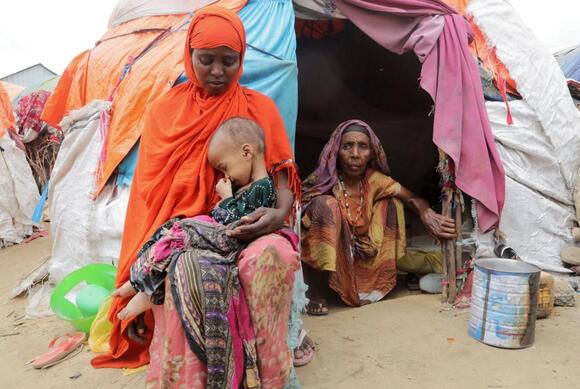The UN’s undersecretary-general for humanitarian affairs and emergency relief coordinator, Martin Griffiths has questioned where the promised $100bn (£87bn) a year to fight the impact of global heating in poorer countries had gone.
Griffiths called for greater transparency around climate finance, noting that the billions of dollars pledged have not also been used to fight famine in Somalia.
Recall that the UN had warned that a state of famine is likely to be declared in areas of Somalia by the end of the year as the country continues to struggle with drought and flare-ups of conflict.
“The truth of the matter is that we are scrambling to try to understand where the climate money is that was promised a decade ago,” said Griffiths. “Who’s holding it and who is not delivering it to places like Somalia?”.
Speaking further, he said, “Somalis are the victims of our behaviour, the victims of our habits – not of theirs. And yet we haven’t even managed to get to them the money that we pledged nobly some time ago for exactly this kind of purpose.”
Read also: Data shows East African oil project will emit vast amounts of carbon
Griffiths’ criticism of the opaque financing system adds to the growing calls from African countries and campaigners for greater transparency and easier access to the promised money.
It will also be recalled that at the UN climate change conference in 2009, rich countries pledged to give low-income states $100bn a year by 2020 to mitigate and adapt to the climate crisis.
The Green Climate Fund was created as a way to deliver the money but it has had limited impact because rich countries often channel their financing through the World Bank or regional development banks.
The Organisation for Economic Co-operation and Development, which monitors donor contributions to climate financing in developed countries, mobilised $83bn in 2020. Between 2016 and 2020, low-income countries only received 8% of the money.
Last week, however, Oxfam said that the figure mobilised by developed countries was between $21bn and $24.5bn and that only a fifth of that made it to less-developed countries. The charity said loans make up more than 70% of climate financing.
In his reaction, Gabon’s environment and climate change minister, Prof Lee White said that the system was flawed, adding that donor country self-report contributions and there is no clear way to trace how much money has been donated and where it has been spent.
He maintained that only a fraction of the money that rich countries say they have provided reaches the Green Climate Fund and even then applications for money come with overcomplicated criteria.
Story was adapted from the Guardian.
